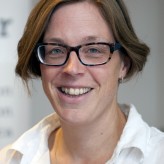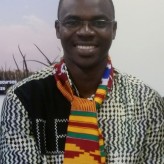These VIA Water projects started in 2016
20 new innovations started working on their ideas
VIA Water proudly presents to you the 20 innovations that started their VIA Water project in 2016:
1. Green Keeper Africa installs transformation paths from one of the most invasive weed in the world: water hyacinth. They organize community harvesting sessions of the weed with groups of women living in the affected regions in Benin. The weed enters an industrial transformation into a sorbent which is 100% organic and impressively efficient. GKA sorbent is a great solution to handle industrial waste spills.
More info: https://www.viawater.nl/projects/green-keeper-africa-benin
2. The Mobile Desludging Device Project received a wildcard to work in Ethiopia. WASTE has developed desludging devices and simple effective faecal Sludge treatment methods. WASTE is now entering the demonstration phase of the project and is looking for an opportunity to demonstrate the methods developed. One of the potential devices developed is a small desludging devise - made with local materials - to empty “difficult” sludge in hard to reach places.
More info: https://www.viawater.nl/projects/mobile-desludging-device-in-ethiopia
3. The Greening Plastic Project brings about an integrated approach to solve some of the most evident challenges faced by countries as Senegal in dealing with waste production, environmental degradation and increasing demand for agricultural products. Through a wildcard, The Greening Plastic Project will support a Senegalese SME (DMS) in expanding its recycled plastic production with a line of drip irrigation systems (DIS), train farmers in the use and maintenance of these systems, and support institutes responsible for managing the environment with training in innovative approaches for environmental quality monitoring using passive sampling techniques.
More info: https://www.viawater.nl/projects/the-greening-plastic-project-senegal
4. The Water Technology Academy (Ghana) is introducing a new dimension to the capacity building programs. It will focus on Performance Support aiming to improve the effectiveness (higher quality more sustainable result) and at the same time improve the efficiency (lower cost) of the capacity building programs from technology providers, water utilities and NGO’s. The Water Technology Academy will support capacity building in the workplace to make sure that people have access to content exactly where and when they need it.
More info: https://www.viawater.nl/projects/water-technology-academy-ghana
5.Chezo Serious Gaming Hub in Kenya wants to bring together all stakeholders involved in integrated water management challenges: namely residents, local government, subject matter experts and creative and technical people in order to solve, address and create awareness via serious gaming. This rich collaboration of disciplines aims to achieve new integral insights, develop new tools and stimulate new ideas.
More info: https://www.viawater.nl/projects/chezo-serious-gaming-hub-kenya
6.The Improving Sustainable Groundwater Exploration with Amended Geophysics (ISGEAG) Project aims to apply existing and new geophysical methods in 3 reasonably well researched areas in Kenya. The research will show the limitations of different geophysical methods, and study their best combination. An on-the-job training trajectory for Kenyan engineers as well as students from related studies runs parallel to the research programme. This will result in better interpreted and consistent assessment of geophysical survey results, leading to a more sustainable abstraction of groundwater. Hence, the burden of fetching water is alleviated and occurrence of water-related diseases reduced.
More info: https://www.viawater.nl/projects/improving-application-of-geophysical-groundwater-exploration-in-kenya
7.The Women Development Centre (WODEC) will locally produce sanitary towels for the Menstrual Hygiene Management Project, using a low-cost machine, aimed at improving hygiene and eco-friendly usage at a lower price for underprivileged women and adolescent girls in poor neighborhoods and slums in urban centres within western Kenya. The enterprise will partner with local organizations to train women in producing and distributing soap and menstrual hygiene kits, and with school health and hygiene clubs so as to demystify any cultural shortcomings such as taboos and ensure exclusivity.
More info: https://www.viawater.nl/projects/menstrual-hygiene-management-in-western-kenya
8.Uncontrolled sand harvesting in the mid Athi River catchment (Kenya) has led to lowering of the water retention capacity of tributaries and distributaries, leading to reduced access to ground water. The Sustainable Sand Utilization Management Project will integrate water resource management through sustainable sand harvesting while strengthening livelihoods and economic opportunities for the local communities. To achieve this, the project will build local capacity and create opportunities for participation in the development of sustainable sand management plans; and support negotiations among all the actors – including the private sector - to attain amicable and sustainable way of addressing the competing claims over sand and water resources. Alternative income-generating-activities will be explored to replace sand harvesting.
More info: https://www.viawater.nl/projects/sustainable-sand-utilization-management-in-kilome-kenya
9.
The Flood Risk Assessment Methods Project was set up to analyze the flood risk and assess the causes of urban flooding to ultimately propose sustainable measures in order to reduce the flood risk in the capital city of Ghana. The assessment has been finished in the fall of 2016; find the results here: https://www.viawater.nl/news/first-via-water-project-completed-in-ghana.
More info: https://www.viawater.nl/projects/flood-risk-assessment-methods-in-accra-ghana
10.Innovative Sanitation Services for Bamako, Mali aims to develop alternative services for faecal sludge collection, that integrate manual and mechanical emptying techniques, allowing to serve neighborhoods hard to access, as well as the most deprived households, who are currently served exclusively by unprofessional manual emptiers. Besides that, it will work on an app and a call center for optimizing the encounter between offer and demand for faecal sludge collection services.
More info: https://www.viawater.nl/projects/innovative-sanitation-services-for-bamako-mali
11.Affordable, robust, less theft/vandalism prone wireless sensors will be developed by the Reducing Physical Water Losses by Improved Data Systems Project, aimed to revolutionise smart grid data collection for Water Service Providers (WSPs) in Kenya. Aggregated water flow data will be used to establish the Non Revenue Water losses and direct the response effort to District Metering Areas with the highest volumes losses. Sudden drops or a gradual decrease in water flow/pressure/level readings will serve as early warning signals for burst and leakages or water theft.
More info: https://www.viawater.nl/projects/reducing-physical-water-losses-by-improved-data-systems-in-kericho-kenya
12.
The Biological Urban Sanitation Project and its proposed BioSan system aim at gradually reducing the sanitation chain in Mozambique to practically nothing. The BioSan system builds on the impressive appetite of a Black Soldier Fly larva that after about a month becomes a pupa and a black fly that only lives for 8 days. This project aims to develop low-budget marketable designs minimising the need for pit emptying etc, including physical contact:
More info: http://https://www.viawater.nl/projects/biological-urban-sanitation-bus-project-in-maputo-mozambique
13.Closing the Water Loop for Car Washing Stations is a project in Ghana, that seeks to test on a bench scale, a low-cost treatment system for recycling effluents from car wash stations. It will include the characterization of car wash stations, water quantity and quality auditing at car wash stations, stakeholder engagements and laboratory trial of a low-cost technology for recycling wastewater. This will be followed by a technology pilot phase to test it in the field, after which a business trial will be developed.
More info: https://www.viawater.nl/projects/closing-the-water-loop-for-carwashing-stations-in-kumasi-ghana
14.Hydroponics Kenya and its project Hydroponics for Urban Low Income Groups plans to design, install, and maintain simplified hydroponics and aquaponics units, in which plants can grow without soil. Learning how to develop and manufacture hydroponics and aquaponics units locally is part of the project, to ensure sustainability. This will enable Hydroponics Kenya to test different techniques and decide which works before they upscale to other regions.
More info: https://www.viawater.nl/projects/hydroponics-for-urban-low-income-groups-kenya
15.Sanergy produces a high quality biosolids-based organic fertilizer called Evergrow in Kenya. Through its VIA Water project, Exploration of Sales Channels for Organic Fertilisers for Smallholders, Sanergy will explore market entry strategies towards smallholders to ensure sustainability of our value chain. The project will simultaneously launch sales and customer support through three different channels to measure the efficiency of each channel, create lasting relationships with farmers and providing them with useful agricultural good practices content.
More info: https://www.viawater.nl/projects/exploration-of-sales-channels-for-organic-fertilisers-for-smallholders-in-kenya
16.Trace and its project Roof Tiles from Recycled Plastics and Glass seek to pioneer production of eco-friendly, affordable and high quality building products starting with roofing tiles using discarded post-consumer wastes such as plastics and glass as input materials. The project aims to produce durable building materials while solving the problem of waste in Kenya.
More info: https://www.viawater.nl/projects/roof-tiles-from-recycled-plastics-and-glass-kenya
17.
The Kajiado (Kenya) Sponge City project aims do develop a strong methodology to improve access to safe water supply for the urban poor. Roads, roofs and other hard surfaces can be augmented to perform as catchment area and water can be redirected for infiltration or storage in urban parks. The project will work on practical and applicable solutions for recharge retention and reuse (3R) of water in urban environments.
More information will follow soon on our projects page: https://www.viawater.nl/projects
18.The Sponge Towns Project in Kitui, Kenya is all about turning an urban area into a sponge, soaking up the water and buffering itself for storm water and drought. Increasing its natural buffer capacity to hold, clean and drain water. This means less flooding and more storage, reduced damage and health hazards, and increased recharge and water availability. The project activities can be summarized in engaging with community platform, baseline survey, planning and design, implementation and outreach, and the piloting of multiple techniques, broadly divided in big structures using f.i. road infrastructure to harvest water and interventions at a household level.
More information will follow soon on our projects page: https://www.viawater.nl/projects
19.
The Innovative Funding for WASH at Secondary Schools Project (West Kenya) proposes a financing model that offers a sustainable alternative to the traditional financing approach in the sector. The model, apart from providing opportunity for greater accountability in the use of WASH sector funding, will introduce entrepreneurship to the learning institutions with focus on ensuring sustainability of both the fund and the Operation and Maintenance of the developed infrastructure.
More information will follow soon on our projects page: https://www.viawater.nl/projects
20.
The Settled Sewer Project, a pilot innovative project in the Tamale City (Ghana) will consist of separate interceptor tanks at households, collector sewer pipe networks to benefit households with a daily per capita sewage production of 70 liters. The project will adopt an integrated approach to increase the value and use of all waste resources for increased economic and social development (public health) of the Tamale City.
More information will follow soon on our projects page: https://www.viawater.nl/projects

